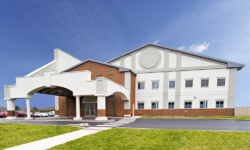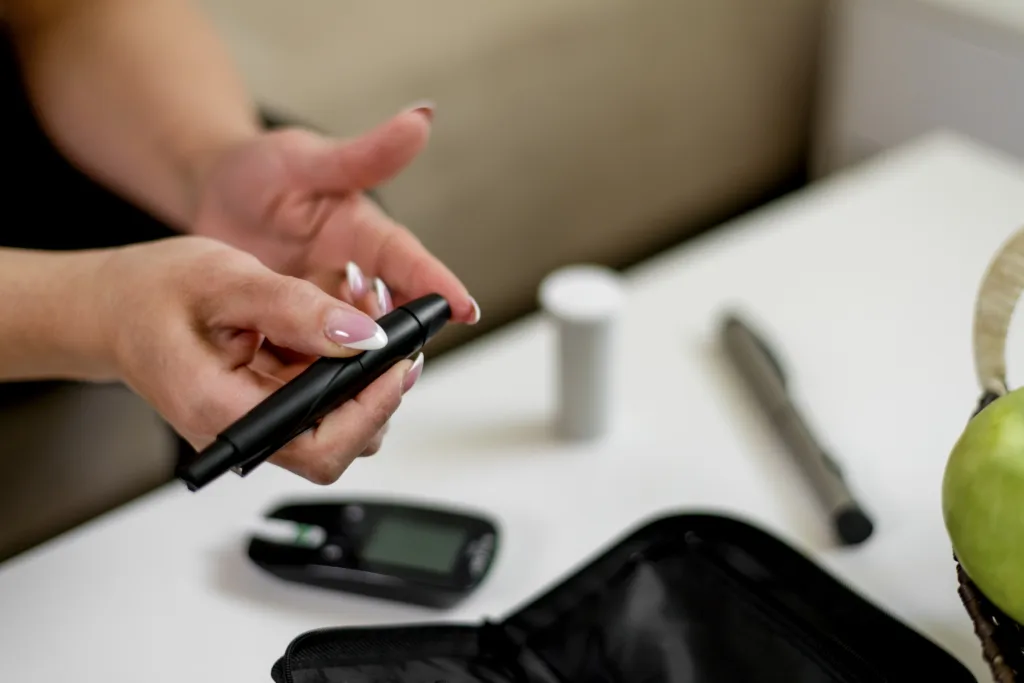Wound Care in Addiction Treatment: Why It Matters at Pyramid Healthcare Philadelphia

When someone enters treatment for substance use disorder, their needs often go far beyond therapy or medication. Many individuals also struggle with neglected or infected wounds—injuries that may be painful, dangerous or even life-threatening if not treated promptly.
At Pyramid Healthcare in Philadelphia, we recognize the need for comprehensive care. Our ASAM Level 3.7 medically monitored inpatient program includes wound care support as part of our whole-person approach to treatment. Whether a person arrives with untreated abscesses, pressure sores or post-surgical wounds, we ensure their physical recovery is supported alongside their mental and emotional healing.
What Is Wound Care?
Wound care is the medical treatment of skin and tissue injuries, including cleaning, dressing, infection prevention and support for healing. In a medical setting like Pyramid Healthcare, wound care includes:
- Daily wound assessments by nurses or medical staff
- Dressing changes to protect wounds and promote healing
- Monitoring for signs of infection or delayed healing
- Referrals to wound care specialists when needed
- Pain management and coordination with a broader care plan
Wound care is more than just first aid—it’s an essential part of preventing complications, especially for people with compromised immune systems or poor circulation due to drug use or chronic illness.
What Causes Wounds in People with Substance Use Disorders?
Many individuals entering treatment arrive with wounds caused by a variety of factors related to substance use and its consequences, such as:
- Injection Drug Use
- Repeated or improper injection can lead to:
- Abscesses (pockets of infection under the skin)
- Track marks or chronic wounds at injection sites
- Collapsed veins and poor circulation
- Poor Hygiene or Living Conditions
- People experiencing homelessness or housing instability may develop:
- Skin infections from exposure
- Cuts or blisters that go untreated
- Pressure sores from sleeping in cars, shelters or on hard surfaces
- Accidents or Physical Trauma
- While under the influence, individuals may be more prone to:
- Burns, falls or lacerations
- Fights or injuries from risky behavior
- Lack of follow-up after emergency room care
- Underlying Medical Conditions
Some clients have preexisting issues like:
- Diabetes, which slows wound healing and increases infection risk
- Poor nutrition, common in active addiction, which weakens the skin and immune system
- Peripheral vascular disease, which restricts blood flow to limbs
Without medical attention, these wounds often worsen over time—posing serious risks that go far beyond discomfort.
What Happens When Wound Care Is Ignored?
Untreated wounds aren’t just painful—they can lead to serious complications. For individuals in early recovery, a lack of wound care may result in:
- Cellulitis (a deep skin infection that can spread quickly)
- Osteomyelitis (bone infection)
- Sepsis (a life-threatening response to infection)
- Amputation in extreme cases of tissue death
- Missed treatment sessions due to pain, embarrassment or hospitalization
These complications can interrupt a person’s ability to stay in treatment, engage with therapy and recover both mentally and physically.
How Pyramid Healthcare Philadelphia Provides Wound Care
In our Level 3.7 medically monitored program, we care for clients who need daily wound assessments and specialized support. Here’s how we approach wound care:
- Routine evaluations by our trained nursing staff
- Clean, sterile dressing changes to protect against further infection
- Coordination with local wound specialists and hospitals if higher-level care is needed
- Ongoing monitoring for symptoms of infection, such as redness, warmth, discharge or swelling
- Education for clients on wound hygiene and prevention
We don’t treat wound care as a side concern—it’s integrated into a larger recovery plan. By addressing the whole person, we reduce the risk of medical emergencies and support lasting recovery.
A Safer Start to Healing in Philadelphia
Recovery should never come at the expense of physical well-being. At Pyramid Healthcare in Philadelphia, we’ve built a program that meets clients where they are—physically and emotionally. Whether you’re starting treatment with painful injection wounds, pressure ulcers or slow-healing injuries, we’re equipped to help.
We proudly accept Pennsylvania Medicaid, most commercial insurance plans and offer self-pay options, so care is accessible when it matters most.
If you or someone you love is dealing with addiction and untreated wounds, help is available.
Contact Pyramid Healthcare Philadelphia today to learn more about our medically monitored services and how we support healing—inside and out.
When someone enters treatment for substance use disorder, their needs often go far beyond therapy or medication. Many individuals also struggle with neglected or infected wounds—injuries that may be painful, dangerous or even life-threatening if not treated promptly.
At Pyramid Healthcare in Philadelphia, we recognize the need for comprehensive care. Our ASAM Level 3.7 medically monitored inpatient program includes wound care support as part of our whole-person approach to treatment. Whether a person arrives with untreated abscesses, pressure sores or post-surgical wounds, we ensure their physical recovery is supported alongside their mental and emotional healing.
What Is Wound Care?
Wound care is the medical treatment of skin and tissue injuries, including cleaning, dressing, infection prevention and support for healing. In a medical setting like Pyramid Healthcare, wound care includes:
- Daily wound assessments by nurses or medical staff
- Dressing changes to protect wounds and promote healing
- Monitoring for signs of infection or delayed healing
- Referrals to wound care specialists when needed
- Pain management and coordination with a broader care plan
Wound care is more than just first aid—it’s an essential part of preventing complications, especially for people with compromised immune systems or poor circulation due to drug use or chronic illness.
What Causes Wounds in People with Substance Use Disorders?
Many individuals entering treatment arrive with wounds caused by a variety of factors related to substance use and its consequences, such as:
- Injection Drug Use
- Repeated or improper injection can lead to:
- Abscesses (pockets of infection under the skin)
- Track marks or chronic wounds at injection sites
- Collapsed veins and poor circulation
- Poor Hygiene or Living Conditions
- People experiencing homelessness or housing instability may develop:
- Skin infections from exposure
- Cuts or blisters that go untreated
- Pressure sores from sleeping in cars, shelters or on hard surfaces
- Accidents or Physical Trauma
- While under the influence, individuals may be more prone to:
- Burns, falls or lacerations
- Fights or injuries from risky behavior
- Lack of follow-up after emergency room care
- Underlying Medical Conditions
Some clients have preexisting issues like:
- Diabetes, which slows wound healing and increases infection risk
- Poor nutrition, common in active addiction, which weakens the skin and immune system
- Peripheral vascular disease, which restricts blood flow to limbs
Without medical attention, these wounds often worsen over time—posing serious risks that go far beyond discomfort.
What Happens When Wound Care Is Ignored?
Untreated wounds aren’t just painful—they can lead to serious complications. For individuals in early recovery, a lack of wound care may result in:
- Cellulitis (a deep skin infection that can spread quickly)
- Osteomyelitis (bone infection)
- Sepsis (a life-threatening response to infection)
- Amputation in extreme cases of tissue death
- Missed treatment sessions due to pain, embarrassment or hospitalization
These complications can interrupt a person’s ability to stay in treatment, engage with therapy and recover both mentally and physically.
How Pyramid Healthcare Philadelphia Provides Wound Care
In our Level 3.7 medically monitored program, we care for clients who need daily wound assessments and specialized support. Here’s how we approach wound care:
- Routine evaluations by our trained nursing staff
- Clean, sterile dressing changes to protect against further infection
- Coordination with local wound specialists and hospitals if higher-level care is needed
- Ongoing monitoring for symptoms of infection, such as redness, warmth, discharge or swelling
- Education for clients on wound hygiene and prevention
We don’t treat wound care as a side concern—it’s integrated into a larger recovery plan. By addressing the whole person, we reduce the risk of medical emergencies and support lasting recovery.
A Safer Start to Healing in Philadelphia
Recovery should never come at the expense of physical well-being. At Pyramid Healthcare in Philadelphia, we’ve built a program that meets clients where they are—physically and emotionally. Whether you’re starting treatment with painful injection wounds, pressure ulcers or slow-healing injuries, we’re equipped to help.
We proudly accept Pennsylvania Medicaid, most commercial insurance plans and offer self-pay options, so care is accessible when it matters most.
If you or someone you love is dealing with addiction and untreated wounds, help is available.
Contact Pyramid Healthcare Philadelphia today to learn more about our medically monitored services and how we support healing—inside and out.







